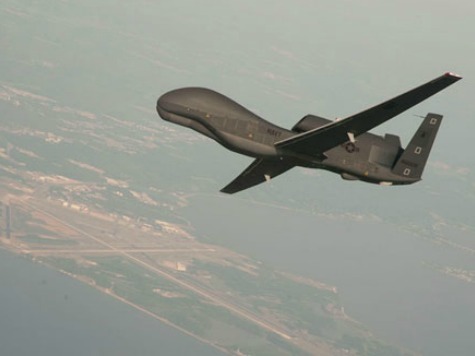(AP) MONROE, La. — Paul Karlowitz has spent more than 40 years flying airplanes or teaching people to fly them, first as a U.S. Air Force pilot and now as a professor of aviation at the University of Louisiana at Monroe.
But today, Karlowitz is spending less time in an airplane cockpit and more time on the ground leading ULM’s new drone program, a concentration within the aviation department. ULM, the only Louisiana university to offer such a concentration, also offers a post-baccalaureate certificate.
“It’s really a coming thing,” Karlowitz said of unmanned aircraft technology.
And although Amazon chief executive Jeff Bezos grabbed headlines late last year when he said his company is testing package delivery using drones, Karlowitz believes the biggest opportunities in Louisiana will come in agriculture.
“There are near-infrared cameras for drones that are specially designed for analyzing crops,” Karlowitz said. “It can analyze the health of the crop — detect problems before the farmer can even see them with his eyes.
“It provides a chance to identify and treat problems before any damage is done.”
A study commissioned last year for the Association for Unmanned Vehicle Systems International forecast the total economic impact of drone integration in the U.S. from 2015-17 to be $13.7 billion with more than 70,000 jobs created.
The same study forecast a total economic impact in Louisiana of $213 million during the same time with more than 1,000 jobs created.
“We can’t guarantee students a job, but we believe there won’t be enough people with the necessary education and skills to meet the new industry’s demand,” Karlowitz said.
The study’s target date began in 2015 because the Federal Aviation Administration is expected to issue its first rules for the integration of unmanned aircraft systems sometime this year. Until those rules are issued, commercial use of drones is illegal.
“The very first class of drones the FAA will address are ours, the smaller ones,” Karlowitz said. “That’s why we’re so excited.”
East Carroll Parish producer Tap Parker said he’s already researching how drone technology can help him on his farms.
“It’s definitely one of the hot topic for new technology in agriculture,” Parker said. “I can already think of a lot of applications, especially pinpointing specific problems.”
Louisiana Agriculture Commissioner Mike Strain called drone technology “one more tool that can be used by farmers and crop consultants,” he said.
“Farmers can use the data for early detection of disease and variability of overall growth, then modify inputs to maximize production and yield,” Strain said.
But there are concerns from some within the agriculture industry, specifically from crop-duster pilots.
“They could be a real hazard for us,” said Drew Keahey of Caldwell Parish, who operates a crop-dusting service and farms. “If I pull up over a tree line and that drone is not bigger than a hawk, I’m not going to see it. If it hits my turbine, that’s an automatic takedown. That drone isn’t looking out for me.”
Still, there seems to be little doubt that the drones will soon be sharing the skies with crop-dusters, and interest in ULM’s program continues to grow.
Karlowitz said the first class last fall drew seven students without any promotion or recruiting. “This semester, we have 22 students in one of the classes,” he said. “We believe this concentration will continue to grow, especially when people begin to see the demand for these students.”

COMMENTS
Please let us know if you're having issues with commenting.